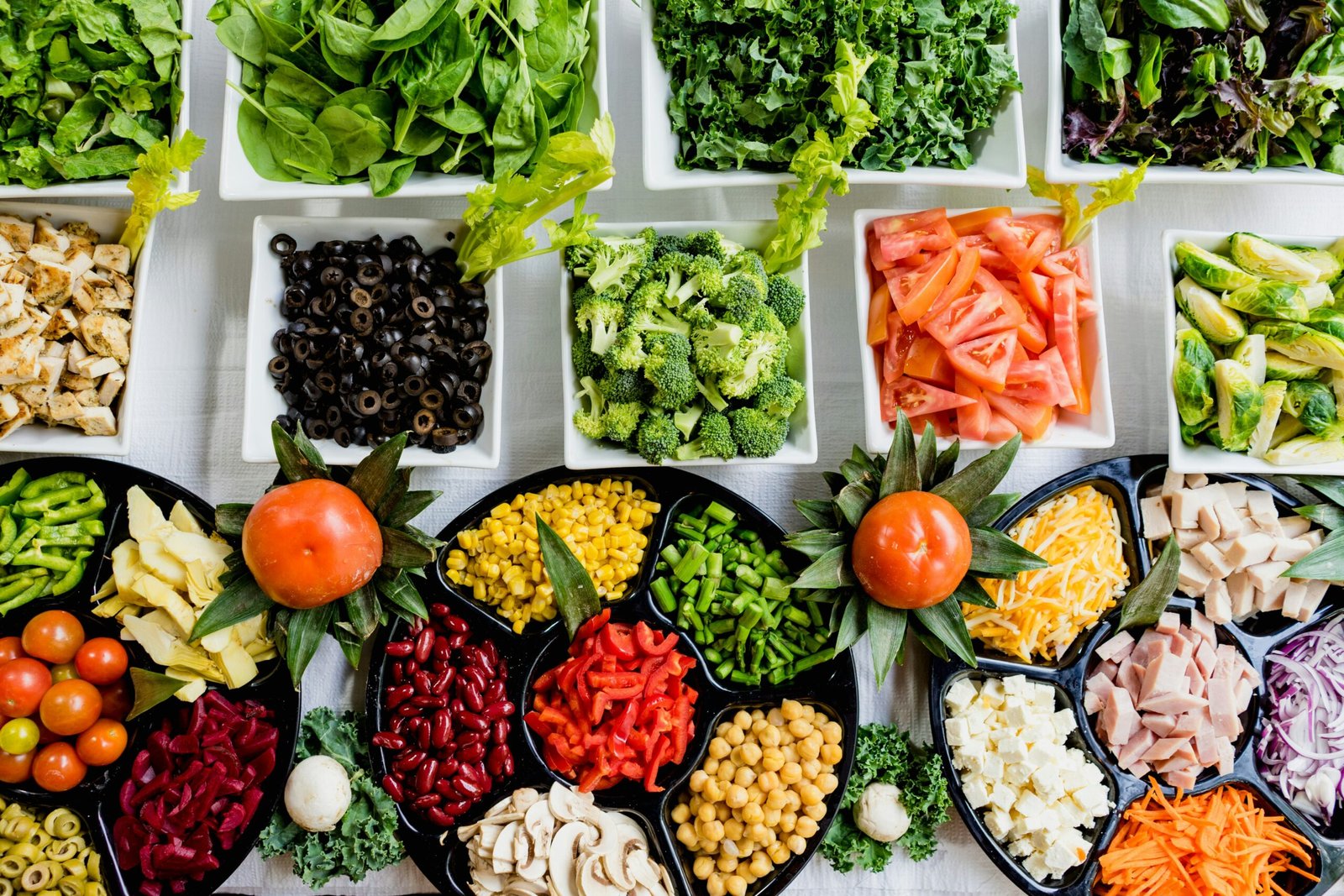One of the main reasons why knowing the source of your ingredients is crucial is because it allows you to ensure the quality and freshness of the food you serve. When you know where your ingredients come from, you can establish a direct relationship with local farmers and suppliers who prioritize sustainable and organic farming practices. This means that the fruits, vegetables, and other produce you use in your menu are likely to be picked at the peak of their ripeness, ensuring maximum flavor and nutritional value.
Furthermore, knowing the source of your ingredients allows you to have greater control over the overall sustainability of your menu. By choosing to support local farmers and suppliers, you contribute to reducing the carbon footprint associated with food transportation. Additionally, you can prioritize ingredients that are in season, reducing the need for extensive refrigeration or greenhouse cultivation.
Another important aspect of knowing the source of your ingredients is being able to verify their safety and purity. Unfortunately, the food industry is not immune to contamination issues, such as pesticides, antibiotics, or genetically modified organisms (GMOs). By establishing a direct relationship with your suppliers, you can inquire about their farming and production practices, ensuring that your ingredients are free from harmful chemicals and additives.
Moreover, knowing the source of your ingredients allows you to support local economies and foster community connections. By sourcing ingredients locally, you contribute to the livelihoods of small-scale farmers and producers, helping to sustain their businesses and preserve traditional farming methods. This not only adds a sense of authenticity to your menu but also creates a unique dining experience for your customers, who can appreciate the story behind their meal.
In conclusion, knowing the source of your ingredients is essential for creating a truly healthy and wholesome menu. It allows you to ensure the quality, freshness, and safety of the food you serve, while also promoting sustainability and supporting local economies. By prioritizing transparency and establishing direct relationships with your suppliers, you can provide your customers with a dining experience that is not only delicious but also socially and environmentally responsible.
Ensuring Nutritional Value
One of the key reasons why it’s important to know the source of your ingredients is to ensure their nutritional value. The way ingredients are grown, processed, and transported can significantly impact their nutrient content. For example, fruits and vegetables that are grown in nutrient-rich soil without the use of harmful pesticides are likely to have higher levels of vitamins, minerals, and antioxidants.
By sourcing ingredients from local farmers or trusted suppliers who prioritize sustainable and organic practices, you can be confident that your menu items are packed with the essential nutrients your customers need. This not only enhances the overall nutritional value of your dishes but also contributes to the well-being of your patrons.
Moreover, when you have a clear understanding of where your ingredients come from, you can make informed decisions about the types of ingredients to include in your menu. For instance, if you know that a specific farm uses regenerative farming techniques, you can choose to source their products, knowing that they have a positive impact on the environment and promote soil health.
Additionally, by building relationships with local farmers, you can have direct communication about the quality and freshness of the ingredients. This allows you to serve your customers the freshest produce, which not only tastes better but also retains more of its nutritional value. By supporting local farmers, you are also investing in the local economy and helping to maintain the agricultural heritage of your community.
Furthermore, knowing the source of your ingredients enables you to cater to specific dietary requirements or preferences of your customers. For example, if you have customers who follow a gluten-free diet, you can ensure that the grains used in your dishes are sourced from a reputable supplier that guarantees the absence of cross-contamination. This level of transparency and attention to detail can help build trust with your customers and establish your establishment as a reliable and accommodating option for those with dietary restrictions.
In conclusion, understanding the source of your ingredients goes beyond just ensuring their nutritional value. It allows you to make choices that align with your values, support local communities, and cater to the diverse needs of your customers. By prioritizing transparency and sustainability in your ingredient sourcing, you can create a menu that not only tastes delicious but also promotes the health and well-being of your patrons.
Supporting Local and Sustainable Practices
Knowing the source of your ingredients allows you to support local farmers and sustainable practices. By sourcing locally, you reduce the carbon footprint associated with long-distance transportation. Additionally, supporting local farmers helps to strengthen the local economy and promotes a sense of community.
Furthermore, choosing ingredients from sustainable sources ensures that you are not contributing to the depletion of natural resources or the exploitation of workers. Sustainable farming practices focus on minimizing environmental impact, conserving water, and protecting biodiversity. By incorporating these ingredients into your menu, you are not only making a positive impact on the environment but also sending a message to your customers about your commitment to ethical and responsible food choices.
Supporting local and sustainable practices goes beyond just the ingredients you use. It also extends to the way you run your business. By partnering with local suppliers, you can build relationships with people who share your values and are invested in the success of your community. This can lead to a more reliable supply chain and the ability to provide your customers with the freshest, highest quality ingredients.
Additionally, supporting local and sustainable practices can be a marketing advantage for your business. Many consumers are becoming more conscious of the environmental and social impact of their food choices, and they actively seek out businesses that align with their values. By highlighting your commitment to local and sustainable practices, you can attract these customers and differentiate yourself from competitors.
Moreover, supporting local farmers and sustainable practices can have a positive ripple effect on the wider community. When you choose to source ingredients locally, you are supporting the livelihoods of farmers and their families. This, in turn, helps to create a more vibrant and resilient local economy. By investing in sustainable practices, you are also contributing to the conservation of natural resources and the preservation of the environment for future generations.
In conclusion, supporting local and sustainable practices is not just about the ingredients you use, but also about the values you uphold as a business. By sourcing locally and choosing sustainable options, you can make a positive impact on the environment, support the local economy, and attract customers who share your commitment to ethical and responsible food choices. It is a win-win situation that benefits not only your business but also the community and the planet as a whole.
Reducing the Risk of Contaminants
Another crucial aspect of knowing the source of your ingredients is reducing the risk of contaminants. Food safety is a top priority in any health-conscious menu. By understanding where your ingredients come from, you can ensure that they have been produced and handled in a safe and hygienic manner.
When sourcing meat, poultry, or seafood, it is important to know if they have been raised in clean and humane conditions. This not only affects the taste and quality of the final dish but also minimizes the risk of foodborne illnesses. For example, when it comes to meat, choosing suppliers that prioritize free-range and organic farming methods can significantly reduce the presence of harmful chemicals and antibiotics in the final product. Similarly, seafood should be sourced from sustainable fisheries that adhere to strict regulations to protect against contamination from pollutants and toxins.
Additionally, when using dairy products, it is essential to choose suppliers that prioritize proper handling and storage to prevent contamination. Dairy products are susceptible to spoilage and bacterial growth if not handled correctly. Therefore, partnering with suppliers who follow strict hygiene practices, maintain proper temperature control, and regularly test their products for pathogens can greatly reduce the risk of contaminants in your ingredients.
By partnering with reputable suppliers and conducting thorough research on their practices, you can significantly reduce the risk of contaminants in your ingredients. This not only protects the health and well-being of your customers but also safeguards your reputation as a health-conscious establishment. Furthermore, implementing strict quality control measures within your own kitchen, such as regular cleaning and sanitization, proper storage techniques, and rigorous staff training, can further enhance food safety and minimize the risk of contamination.
Furthermore, creating transparency and building trust goes beyond just sharing information about your suppliers and their farming practices. It also involves being open about your own manufacturing processes and quality control measures.
When you provide detailed information about how your ingredients are sourced, processed, and handled, you give customers peace of mind that their food is being produced in a safe and hygienic environment. This can be especially important for individuals with food allergies or dietary restrictions, as they need to know that their specific needs are being met.
Moreover, transparency can extend to other aspects of your business as well. For example, by openly sharing your company’s values and mission, customers can better understand the principles that guide your decision-making processes. This can create a sense of alignment and connection, further strengthening the trust they have in your brand.
Building trust through transparency also involves being responsive and accountable to your customers. This means promptly addressing any concerns or complaints they may have and taking steps to rectify the situation. By demonstrating that you value their feedback and are committed to resolving issues, you show that you prioritize customer satisfaction above all else.
Ultimately, creating transparency and building trust is not just about gaining a competitive edge in the market. It is about fostering long-term relationships with your customers based on honesty, integrity, and shared values. When customers trust your brand, they are more likely to become loyal advocates who not only continue to support your business but also recommend it to others.







